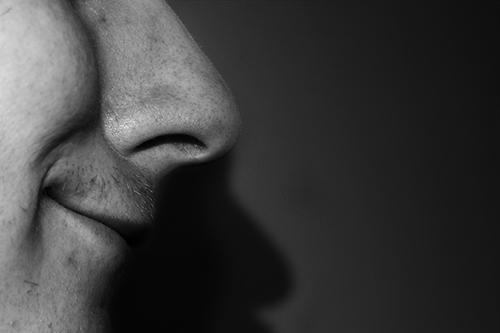Researchers were dubious about the woman's claim she could smell Parkinson's until she correctly identified six Parkinson's patients -- and one that had not yet been diagnosed. Photo by
Elias Maria Rothner/Wikimedia
WASHINGTON, Oct. 22 (UPI) -- A woman who correctly detected Parkinson's disease in people using her sense of smell has inspired research to create a diagnostic test for the disease based on chemicals on skin.
Parkinson's disease is a progressive disorder of the nervous system that over time affects movement. The disease is difficult to diagnose and has no cure.
Joy Milne noticed a slight change in the scent of her husband, Les, six years before he was diagnosed with Parkinson's disease. "It wasn't all of a sudden," Milne told the BBC. "It was very subtle -- a musky smell."
She later joined the charity Parkinson's UK and noticed that members with the disease carried a similar scent. Milne told a scientist at a research lecture about her husband's smell, and that she'd detected it in others with Parkinson's, leading to researchers at Edinburgh University to test her.
The researchers asked 6 people who have Parkinson's and 6 people who do not to wear a t-shirt for a day and return it to them, and the shirts were bagged and coded for later identification.
Milne correctly identified shirts worn by the 6 people who had Parkinson's, but also identified one of the people who did not have the disease as having it. The researchers were impressed that she'd been correct in 11 of the 12 people, she turned out to be correct when the man was diagnosed 8 months later.
The hope, researchers said, is to find the molecular signature responsible for the smell and develop a swab test that will allow for a simple diagnostic test.
"It's very early days in the research, but if it's proved there is a unique odor associated with Parkinson's, particularly early on in the condition, it could have a huge impact," Dr. Arthur Roach, director of research at Parkinson's UK, told The Independent. "Not just on early diagnosis, but it would also make it a lot easier to identify people to test drugs that may have the potential to slow, or even stop Parkinson's, something no current drug can achieve."















